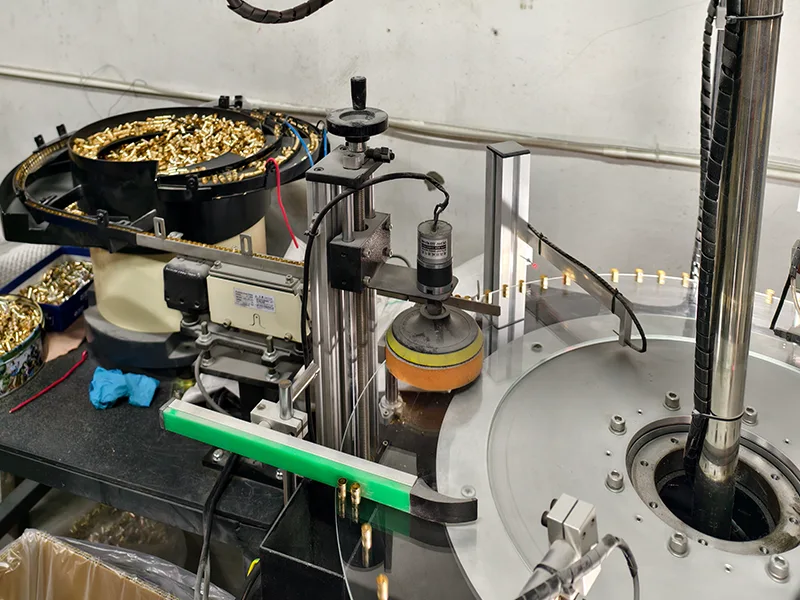The metal aluminum ferrule (also known as the pencil aluminum collar or metal band) is an essential component of high-end pencils. It not only serves a decorative function but also protects the pencil end from damage and facilitates the secure attachment of an eraser. Below is a detailed breakdown of the production process for pencil metal aluminum ferrules.
Raw Material Preparation
- Aluminum Material Selection: Typically, aluminum with a purity of 99.5% or higher is used, with a thickness ranging from 0.1 to 0.3 mm.
- Surface Treatment: The aluminum coil undergoes degreasing and cleaning to ensure a pristine surface.
- Coating Treatment: Some products may receive a pre-applied protective or decorative coating.
Stamping and Forming
Mold Design:
- Custom progressive dies are designed based on the pencil diameter.
Progressive Stamping:
- First step: Blanking circular aluminum discs.
- Second step: Initial drawing to form a shallow cup shape.
- Third step: Multiple progressive draws to form a slender sleeve.
- Fourth step: Trimming and shaping to ensure precise dimensions.
Quality Control:
- Sampling inspection every 5,000 pieces to verify dimensional tolerance (typically ±0.05 mm).
Surface Treatment
Anodizing (Common Process):
- Preparation of electrolyte solution (primarily sulfuric acid).
- Electrochemical oxidation to form an aluminum oxide layer (5-20 μm thick).
- Dyeing (if required for color).
- Sealing treatment to enhance corrosion resistance.
Alternative Processes:
- Electroplating (nickel, chrome, etc.).
- Spray coating (UV paint or special-effect finishes).
- Laser engraving (brand logos or decorative patterns).
Secondary Processing
- Inner Wall Treatment: Some ferrules have special adhesive coatings inside for better eraser adhesion.
- Embossing: Decorative textures pressed onto the surface.
- Punching: Holes for ventilation or decorative purposes in specialty pencils.
Quality Inspection
- Dimensional Check: Diameter, height, wall thickness, etc.
- Visual Inspection: Surface smoothness and color consistency.
- Adhesion Test: Coating durability assessment.
- Salt Spray Test: Corrosion resistance evaluation (typically 24 hours without corrosion).
Packaging and Shipping
- Inner Packaging: Anti-static bags or foam-separated packaging.
- Outer Packaging: Cardboard or wooden boxes with moisture-proofing.
- Transportation Requirements: Avoid compression, moisture, and corrosion.
Industry Trends
- Eco-Friendly Processes: Adoption of chromium-free anodizing techniques.
- Miniaturization: Adapting to thinner pencil designs.
- Smart Features: Integration of RFID and other smart technologies.
- Customization: Increasing capability for small-batch personalized production.
Though a small component, the metal aluminum ferrule exemplifies the precision of modern metalworking. With advancing technology, future production will become more efficient and environmentally friendly while meeting growing demands for customization.

